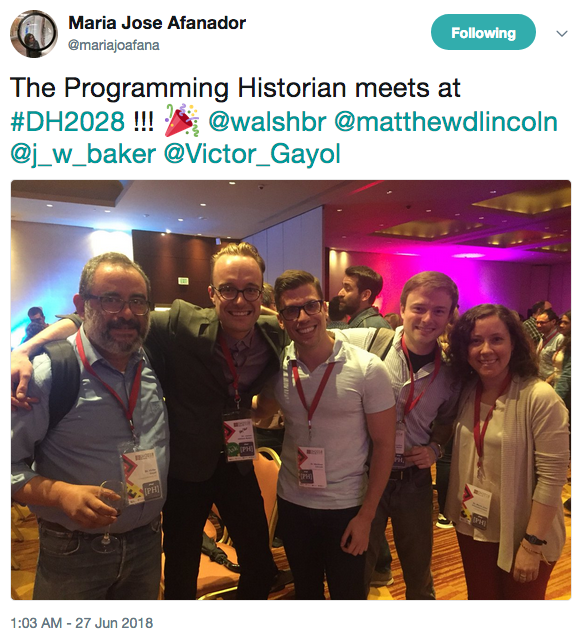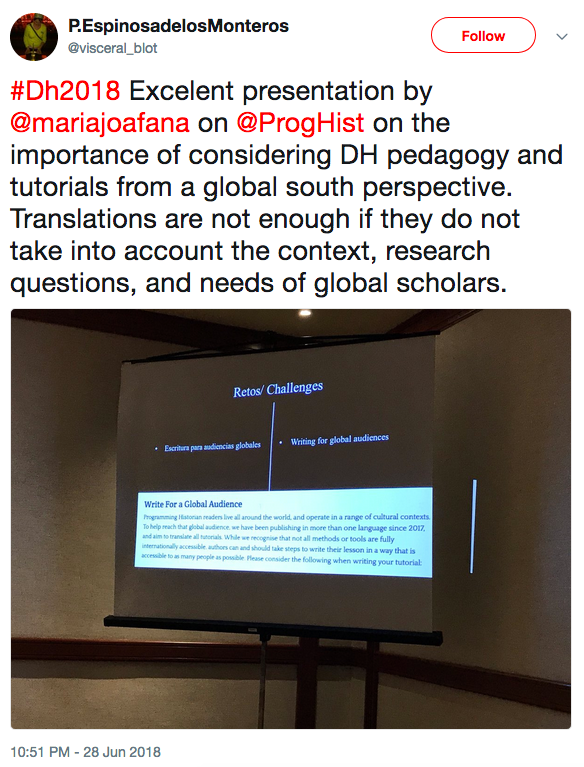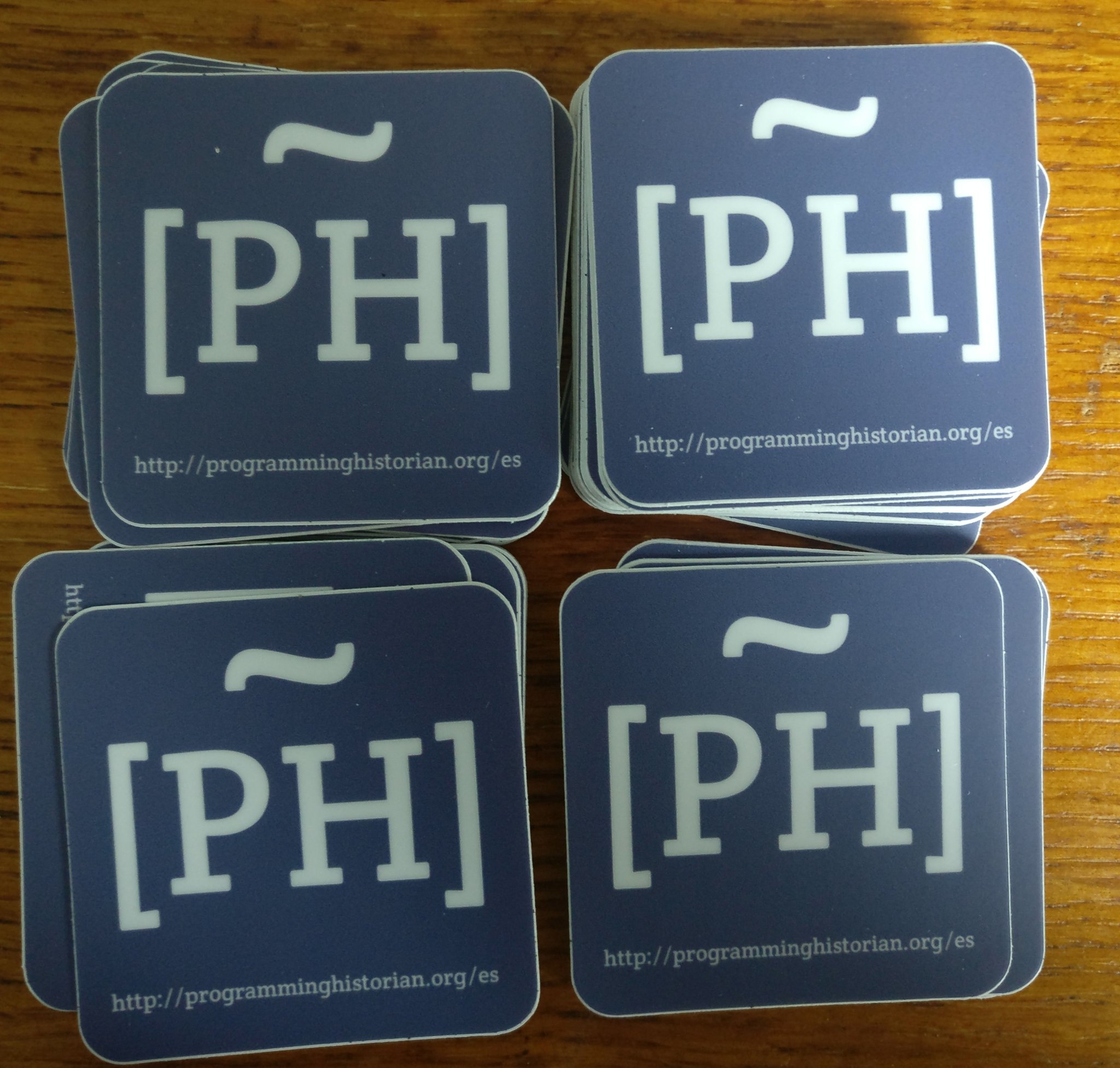 Members of the Programming Historian project team at DH2018
Members of the Programming Historian project team at DH2018
In June 2018, members the editorial board of the Programming Historian joined hundreds of other delegates at the 2018 Digital Humanities Conference (DH2018) in Mexico City, organized by the Association of Digital Humanities Organizations in conjunction with El Colegio de México, La Universidad Nacional Autónoma de México (UNAM), and La Red de Humanidades Digitales (RedHD). The Latin American setting was an ideal pairing for the conference theme of “Puentes/Bridges” and was the perfect opportunity to share our Spanish language initiative at Programming Historian.
Maria José Afanador, one of our Spanish-language editors, presented a paper The Programming Historian en español: Strategies and challenges for building a global DH community in a panel called Local DH, non-standardization. The presentation, which was delivered in Spanish with bilingual slides, introduced Programming Historian to the audience, presented the progress of Spanish-language editorial team, discussed data on the impact of the project, and reflected on the challenges of the project moving forward.
The presentation discussed the achievements of the Programming Historian en español. Since its launch on March 2017, the Spanish-language team has translated 33 tutorials from English to Spanish with the support of a growing network of collaborators from countries includign Spain, Mexico, Colombia, Argentina, and the United States. As the number of tutorials available in Spanish increased and the team worked to make Programming Historian known in Latin America and Spain, the number of visitors from Spanish-speaking countries in grew dramatically. In just a year (May 2017 to May 2018), the number of new visitors from several Spanish-speaking countries grew by as much as 1000%.
The growth of the Programming Historian en español, has also brought about crucial discussions on the internationalization of the project. The challenges of translating and adapting Programming Historian tutorials into Spanish has led the team to consider the question of how to best reach a global audience while making our tutorials accessible and meaningful in a range of cultural contexts. Expanding on this, the presentation reflected on the challeges of incentivating the production of Spanish-language original tutorials in regions such as Latin America, where the digital divide often means limited access to resources for building basic technlogical infrastructures for digital humanities work. Moving forward, the Programming Historian en español is holding a Programming Historian tutorial writing workshop which will bring together Spanish-speaking scholars from North, Central, and South America in an effort to produce the first original Spanish-language tutorials.
 Conference attendees enjoyed the talk!
Conference attendees enjoyed the talk!
We were humbled to discover that the paper was nominated for the 2018 Paul Fortier Prize, given for the best paper by a young scholar/early stage researcher at the conference. Although we did not win, we are proud that the hard work of the editorial team of the Programming Historian and its commitment to geographic and linguistic diversity has been recognized by the global digital humanities community.
The conference was also an opportunity for the project team to meet, in many cases for the first time! The Programming Historian editors at DH2018 included Marie Puren, a member of our nascent French language initiative, who along with the rest of the project team distributed 200 Programming Historian en español stickers to conference delegates.
 Stickers ready to go to Mexico!
Stickers ready to go to Mexico!
About the authors
Maria José Afanador-Llach is an associate professor of Digital Humanities at the School of Arts and Humanities at the Universidad de los Andes, Bogotá (Colombia).

James Baker is Professor of Digital Humanities at the University of Southampton.
